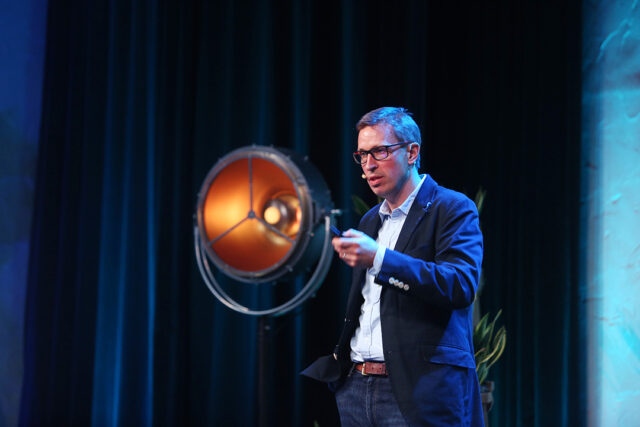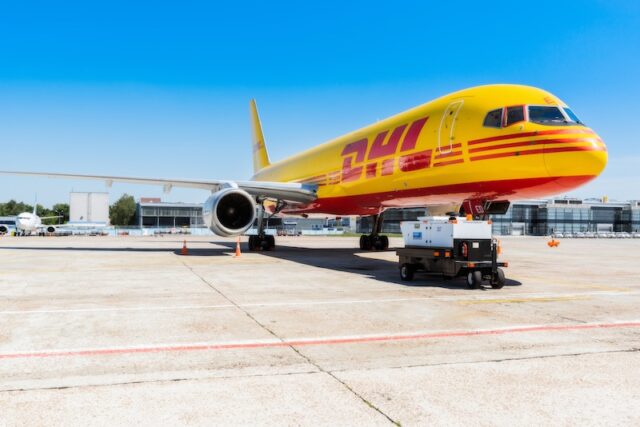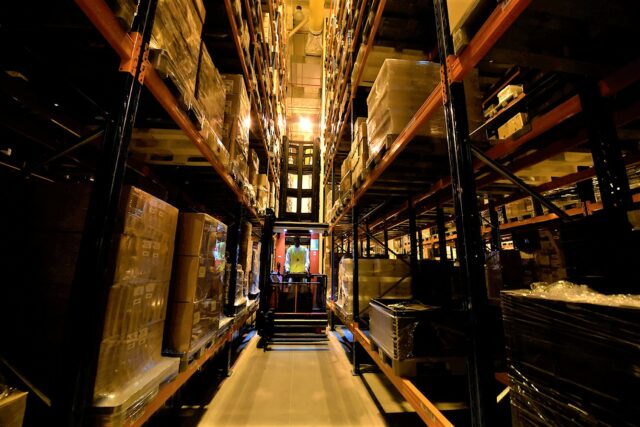The hospitality industry has endured a rough ride over the past few years.
Following the COVID-19 pandemic which stopped the world in its tracks and now with millions facing a cost-of-living crisis, it’s been a period of unprecedented disruption for those involved in the space and beyond.
But it’s a challenge met head-on by Paul Farrow, Vice President of Supply Management at Hilton Hotels, and his team who have been forced to respond as the world continues to shift before their eyes.
Farrow gives us a closer look into the inner workings of his firm’s procurement function and how he has led the charge during his time with Hilton Hotels.
Could we start with you introducing yourself and talking a little about your role at Hilton Hotels?
Paul Farrow (PF): “I’m the Vice President of Hilton’s Supply Management, or HSM as we call it. I’ve been with Hilton Hotels for 12 and a half years, and my role is to head the supply chain function for our hotels across Europe, the Middle East and Africa.
“Over the past few years, Hilton has grown rapidly and has now got 7,000 hotels in over 125 countries globally. What is really exciting is Hilton Supply Management doesn’t just supply Hilton Hotels and the Hilton Engine because we also now supply our franchisees and competitive flags. While we have 7,000 hotels globally, Hilton Supply Management actually supplies close to 13,000 hotels. That’s an interesting business development for us, and a profit earner too.”

You’re greatly experienced, I bet you’ve seen supply chain management and procurement change a lot in recent years?
PF: “The past two to three years have been tremendously challenging on so many industries but I’d argue that hospitality got hit more than most as a result of the Covid pandemic. Here at Hilton, supply management was really important just to keep the business operational throughout that tough time, but I’m delighted to say we’re fully recovered now.
“Looking back, it was undoubtedly difficult, and you only have to look at the media to see that we’re now going through a period of truly unprecedented inflation. On top of the normal day job, it’s certainly been a very busy time.”
Hospitality must have been under an awful lot of pressure during the pandemic…
PF: “Most of our teams as a business and all functions have worked together far more collaboratively than ever before through the use of technology and things like Microsoft Teams and Zoom. Trying to work remotely as effectively as possible changed the way we all had to think and the way we had to do. Now we’re back in the workplace and in our offices, we’re actually looking to take advantage of that new approach.”
Inflation, rising costs, energy shortages, as well as drives towards a circular economy means it’s quite a challenging time for CSCOs and CPOs right now, isn’t it?
PF: “Those headwinds have caused and created challenges of the like that we’ve not seen before. The war in Ukraine and Russia has meant significant supply chain disruption and supply shortages of some key ingredients and raw materials. China is a significant source of materials and they’re still having real challenges to get their production to keep up with demand.
“All the local and short-term challenges are around energy and fuel pricing, so throughout the supply chain that’s been a major factor to what we’ve had to deal with. On top of that is the labour shortages. We rely heavily throughout the supply chain and within our business to utilise labour from around the world. In my region, particularly from say Eastern Europe as well as other businesses all fighting for a smaller labour pool than we had before. We are fighting with the likes of the supermarkets, Amazon’s, not just other hotel companies to capture the labour pool we need both in our properties but also within our supply chain supplies themselves.
Hilton operates a rather unique procurement function, doesn’t it?
PF: “We trade off the Hilton name because our brand strength is something that we are able to utilise and we’re very proud of, but we’ve also got additional leverage by having that group procurement model.
“We’ve got essentially two clients. We’ve got our managed estate which is when an owner chooses to partner with Hilton, they’re signing a management agreement because they want the benefit and value of the Hilton engine. That could be revenue management, how we manage onboarding clients and customers through advertising, as well as the other support we give in terms of finance, HR, marketing and sales as well as procurement.”
HSM is a profit centre and revenue driver through its group procurement model but how does this work?
PF: “Our secret sauce is our culture. It’s our people and that filters across all of our team members and indeed all of our functions. The key strategic pillars are the same for health and supply management around culture, maximising performance and so on as they are across the overall global business.
“Across our 7,000 plus hotels, the majority are actually franchised hotels because that’s the legacy of what still is the model in the US. When I joined Hilton 12 and a half years ago, the reverse is true where nearly all of our hotels in Europe, Middle East and Africa, and indeed in Asia Pacific, were and are managed. In the Europe, Middle East and Africa regions right now we’re building up close to a 50/50 split between managed, leased and franchised.”
What has pleased you most about the roll-out of the HSM?
PF: “It’s certainly not been easy because we’ve got 70 countries that sit within our region here in EMEA and Hilton’s penetration in those individual countries is very different. We may have 100 hotels in one of those markets and only one or two in specific countries. Our scale and our ability to get logistics solutions is different by market.
“Getting everyone on board to what we want to achieve to our guests and to our owners means we have to pull different levers. We have very effective brand standards. If you’re signing up to Hilton, you’re signing up to delivering against those brand standards that we believe are right for our organisation.”
What kind of feedback have you had from your clients?
PF: “Integrity is in our DNA, and we work very closely with our suppliers who we value as partners. These are long-term relationships, and we work hand in hand because we have to see that they’re successful so that we can be successful – it’s really important to what we do and we constantly look for feedback.
“With our internal and our external customers, we’ll have quarterly business reviews and so we’ll get that feedback through surveys where we are asking them to tell us what we do well and what we could do better. Our partners are now asking what additional value can you do to bring support to our organisation through ESG? So that’s what’s on the table now when it wasn’t before. But it’s not just that – it’s about the security of supply competitiveness, competitiveness of pricing, and a whole bunch of other very important things as well.”
Looking to the future, what’s on the agenda for the next few years?
PF: “We’re out there meeting and greeting people in person and there’s always new opportunities that make things exciting in what we do and how we work. Innovation’s very high on our agenda and we’re very proud of what we do in food and beverage. In non-food categories, it’s about how we support our owners and our hotel general managers to find that competitive edge and do the next big thing ahead of our competitors.”
Anything else important to know?
PF: “One thing we’ve been able to take full advantage of is how we’ve been able to grow our business by bolting on new customers. I think it’s fantastic that our competitors choose to use Hilton Supply Management because they benchmarked what our capabilities are and how competitive we are.
“Another key part of the agenda is environmental, social and governance (ESG) sustainability. Responsible sourcing and everything that sits within that is front and centre of what we do. Within that you’ve got human rights, animal welfare, single use plastics as well as general responsible sourcing like managing food waste. The list is very long, but they’re all very important.”
Check out the latest issue of CPOstrategy Magazine here.











